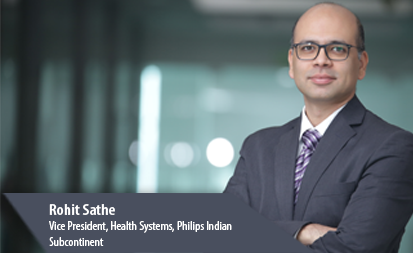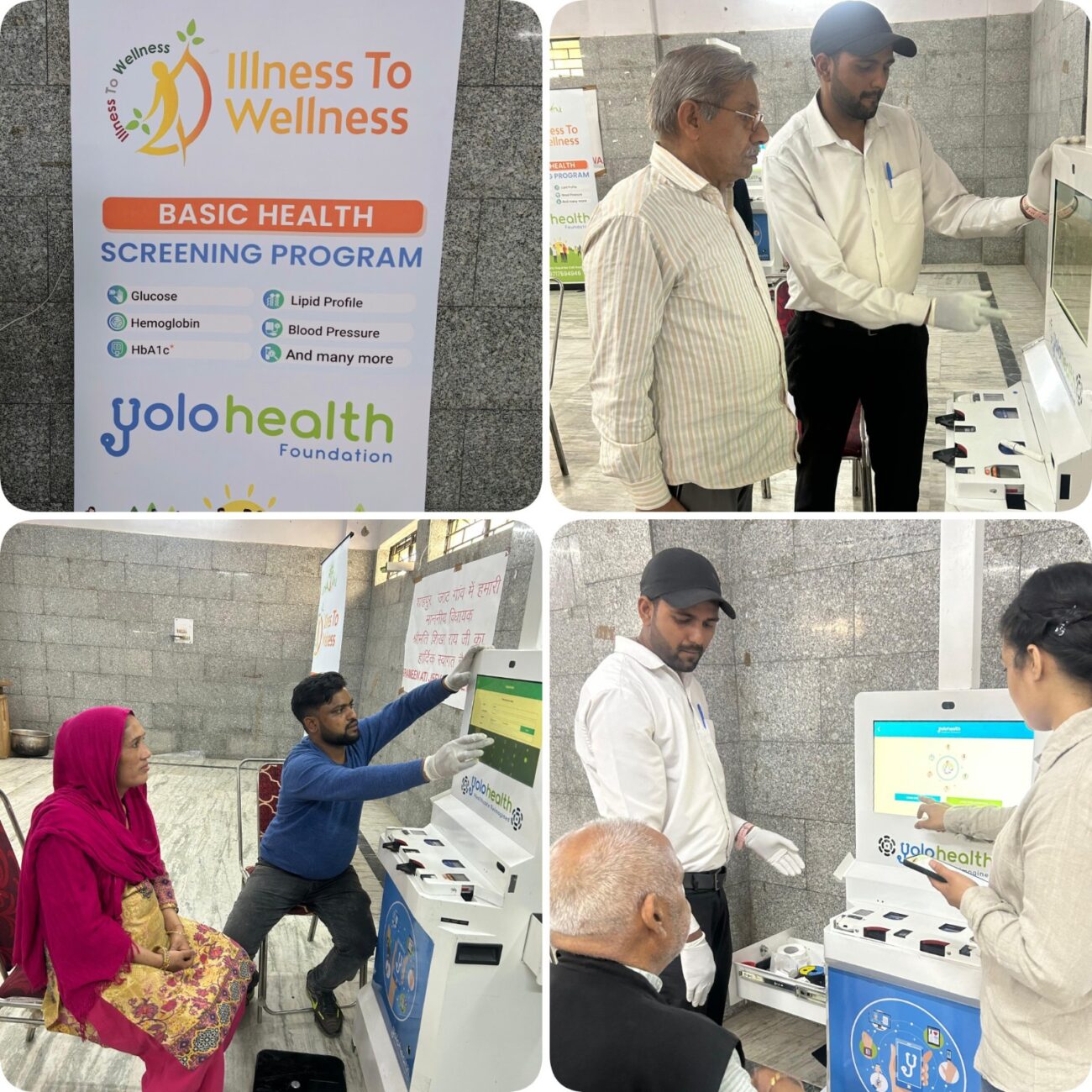Philips Future Health Index 2021 report confirms India’s ambition of digital transformation in healthcare
Remote care emerges as a top priority for Indian business leaders Indian healthcare leaders looking to invest in telehealth and AI to drive digital transformation Difficulties with data management and lack of interoperability emerge

- Remote care emerges as a top priority for Indian business leaders
- Indian healthcare leaders looking to invest in telehealth and AI to drive digital transformation
- Difficulties with data management and lack of interoperability emerge as challenges for adoption of digital technologies
Royal Philips (NYSE: PHG, AEX: PHIA), a global leader in health technology, today announced the publication of its Future Health Index (FHI) 2021 India Report: ‘A Resilient Future: Healthcare leaders look beyond the crisis’. Now in its sixth year, the Future Health Index 2021 report is based on proprietary research across 14 countries, including India, representing the largest global survey of its kind to analyse the current and future priorities of healthcare leaders worldwide.
Feedback from healthcare leaders – including executive officers, financial officers, technology and information officers, operating officers and more – explores the challenges they have faced since the onset of the pandemic, and where their current and future priorities lie, revealing a new vision for the future of healthcare. With a focus on patient-centred healthcare enabled by smart technology, their vision is shaped by a fresh emphasis on partnerships, sustainability, and new models of care delivery, both inside and outside the hospital.
From an Indian perspective, the report highlights that there is an imminent shift towards prioritizing remote care, adopting digital health technologies, and implementing sustainable healthcare practices. According to the report, Indian healthcare leaders almost unanimously (99%) believe that the country’s healthcare policies and plans, such as Ayushman Bharat, are contributing towards building a resilient healthcare system.
On the launch of the report, Rohit Sathe, Vice President, Health Systems, Philips Indian Subcontinent commented “The Covid19 pandemic posed a significant challenge on the Indian healthcare system given the rapid surge in patient volumes. At the same time, it also provided impetus to the adoption of virtual care delivery in the country, thereby enhancing accessibility to care. The Philips Future Health Index India 2021 report explores how Indian healthcare leaders are meeting the demands of today as they prepare for a VUCA world. We realize that not only is digital the future for healthcare in India, but Indian healthcare providers are rapidly adopting strategies to onboard digital technologies in their organizations. We hope that the insights from our report will aid key stakeholders in empowering Indian healthcare leaders to work towards building healthcare systems that are sustainable, adaptable and resilient.”
Remote or virtual care emerges as a top priority
In the second wave of the pandemic, the reported number of Covid19 cases grew significantly in India, thereby increasing the burden on national healthcare system. Indian healthcare leaders’ top priorities reflect these challenges as 75% of them state that facilitating a shift to remote or virtual care is a top priority today. 26% of the healthcare leaders also highlight that technology infrastructure limitations such as slow internet and connectivity issues impede their ability to plan for the future, which might make shifting to remote or virtual care challenging.
Majority of healthcare leaders in India are also either currently pursuing a shift toward value-based care (20%) or are planning to do so in the future (73%), and in greater numbers than those across most of the other countries surveyed.
Three-step approach to digital transformation of healthcare
Indian healthcare leaders appear to be adopting a three-step approach to achieve digital transformation in healthcare. The pillars of this approach include investing in telehealth in the short term to ensure access to care, future investment in AI to drive operational efficiencies and partnerships with other hospitals or healthcare facilities to facilitate the use of these technologies.
79% of healthcare leaders in India say that telehealth is one of the digital health technologies they are most heavily investing in today. These rates exceed those in many other countries surveyed (64% 14-country average) as a part of the report.
94% of Indian healthcare leaders would most like their hospital or healthcare facility to invest in AI technologies in near future – making them among the most likely of those surveyed to plan future investment in this advanced technology (74% 14-country average). Indian healthcare leaders understand the benefits AI can offer healthcare and are planning to invest in the technology primarily to optimize operational efficiency, integrate diagnostics and predict patient outcomes.
To drive forward digital transformation, 41% of Indian healthcare leaders express a desire to collaborate with other hospitals and healthcare facilities from the private sector against the 14-country average of 29%.
Difficulties with data management (65%) and lack of interoperability across technological systems (55%) are seen as top barriers to the adoption of digital technologies. These challenges risk delaying the adoption of digital healthcare technologies that could alleviate pressure on healthcare professionals’ workloads and improve access to care.
Push towards sustainability
The report also highlights that while implementing sustainability practices is not a current concern for many, it is set to become one of the top priorities for Indian healthcare leaders (78%) three years from now. Indian healthcare leaders are increasingly recognizing the role healthcare plays in improving environmental sustainability and are set to make implementing sustainable practices a top priority for the future.
Since 2016, Philips has conducted original research to help determine the readiness of countries to address global health challenges and build efficient and effective health systems. For details on the Future Health methodology and to access the Future Health Index India 2021 report in its entirety.






